Greg King




Tequila A. L. Harris is a Professor in the George W. Woodruff School of Mechanical Engineering, and is the director of the Highly Advanced Roll-to-Roll iManufacturing Systems (HARRiS) group. Her research focuses on investigating the fundamental science associated with manufacture of polymer thin films from fluids (e.g., solutions, dispersions, slurries, etc.) as they are coated onto permeable or impermeable surfaces to make components or devices. She explores the connectivity between thin film functionality, based on their manufacture or structure, and their life expectancy, to elucidate mechanisms by which performance or durability can be predicted. In addition to conducting computational analysis, developing analytical models and running experiments, Harris also develops new manufacturing technologies to fabricate thin films, in wide area or discrete patterns. Target applications are well-suited for a variety of industries including food, energy, electronic, and environmental systems to name a few. In conjunction with her research activities, she is committed to the education, mentoring, and advisement of students towards scholarly achievements. She has published over fifty peer-reviewed articles. Harris has several awards including the National Science Foundation's young investigator CAREER Award and the Lockheed Inspirational Young Faculty Award.
Additive/Advanced Manufacturing; Flexible Electronics; Polymers; micro and nanomechanics; Thin Films; Electronics; Energy Storage; Thermal Systems; Manufacturing and Fluid Mechanics; Polymer processing; mechanical system design; fluid flow; mechanical and physical property characterization of thin film
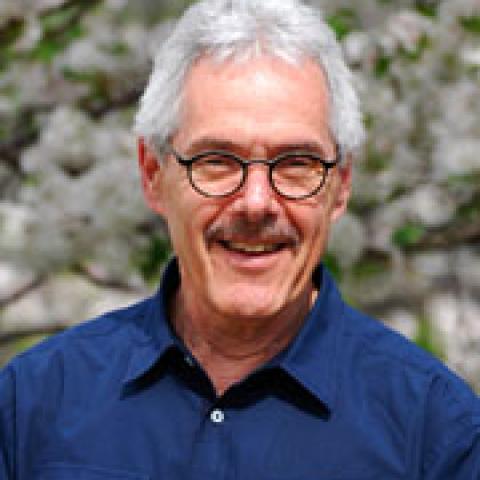
Dr. Glezer began at Tech in 1992 as an Associate Professor. He was named to the Woodruff Chair in Thermal Systems in 2002. Prior, he was an Assistant and Associate Professor at the University of Arizona.
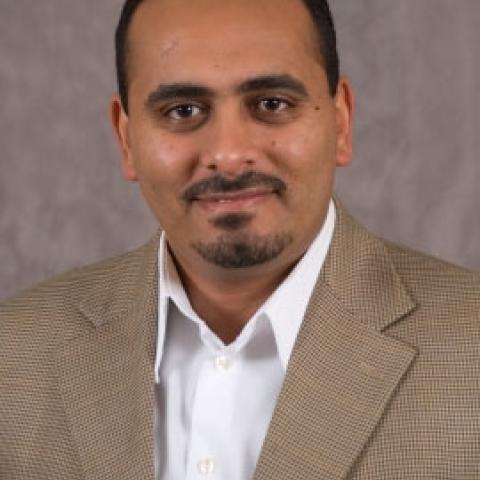
Professor Nagi Gebraeel is the Georgia Power Early Career Professor and Professor in the H. Milton Stewart School of Industrial and Systems Engineering at Georgia Tech. He received his MS and PhD from Purdue University in 1998 and 2003, respectively.
Dr. Gebraeel's research interests lie at the intersection of Predictive Analytics and Machine Learning in IoT enabled maintenance, repair and operations (MRO) and service logistics. His key focus is on developing fundamental statistical learning algorithms specifically tailored for real-time equipment diagnostics and prognostics, and optimization models for subsequent operational and logistical decision-making in IoT ecosystems. Dr. Gebraeel also develops cyber-security algorithms intended to protect IoT-enabled critical assets from ICS-type cyberattacks (cyberattacks that target Industrial Control Systems). From the standpoint of application domains, Dr. Gebraeel has general interests in manufacturing, power generation, and service-type industries. Applications in Deep Space missions are a recent addition to his research interests, specifically, developing Self-Aware Deep Space Habitats through NASA's HOME Space Technology Research Institute.
Dr. Gebraeel leads Predictive Analytics and Intelligent Systems (PAIS) research group at Georgia Tech's Supply Chain and Logistics Institute. He also directs activities and testing at the Analytics and Prognostics Systems laboratory at Georgia Tech's Manufacturing Institute. Formerly, Dr. Gebraeel served as an associate director at Georgia Tech's Strategic Energy Institute (from 2014 until 2019) where he was responsible for identifying and promoting research initiatives and thought-leadership at the intersection of Data Science and Energy applications. He was also the former president of the Institute of Industrial and Systems Engineers (IISE) Quality and Reliability Engineering Division, and is currently a member of the Institute for Operations Research and the Management Sciences (INFORMS), and IISE (since 2005).
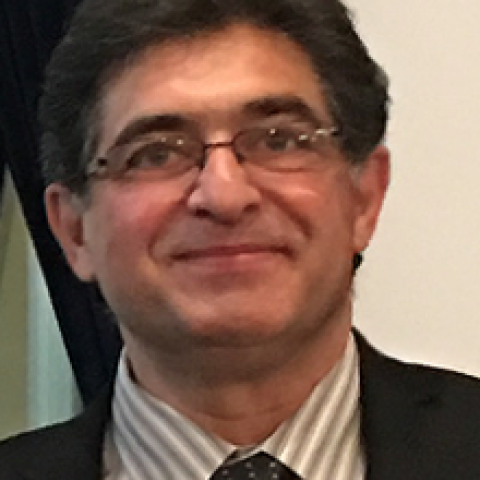
Hamid Garmestani is a professor in the School of Materials Science and Engineering at the Georgia Institute of Technology. He received his education from Cornell University (Ph.D. 1989 in Theoretical and Applied Mechanics) and the University of Florida (B.S. 1982 in Mechanical Engineering, M.S. 1984 in Materials Science and Engineering). After serving a year as a post-doctoral fellow at Yale University, he joined the Mechanical Engineering Department at Florida State University (FAMU-FSU College of Engineering) in 1990.
Primary research and teaching interests include microstructure/property relationship in textured polycrystalline materials, composites, superplastic, magnetic and thin film layered structures. He uses phenomenological and statistical mechanics models in a computational framework to investigate microstructure and texture (micro-texture) evolution during processing and predict effective properties (mechanical, transport and magnetic). His present research interests are processing of fuel cell materials and modeling of their transport and mechanical properties.
Garmestani has been the recipient of a research award (FAR) through NASA in 1997. He received the Superstar in Research award in 1999 by FSU-CRC. He has also been the recipient of the Engineering Research Award at the FAMU-FSU College of Engineering, Spring 2000. He is a member of the editorial board of the International Journal of Plasticity and board of reviewers for journal of Metal Transaction. He is presently funded through NSF (MRD), NASA, Air Force and the Army.
computational mechanics; micro and nanomechanics; Electrical charge storage and transport; Fuel Cells
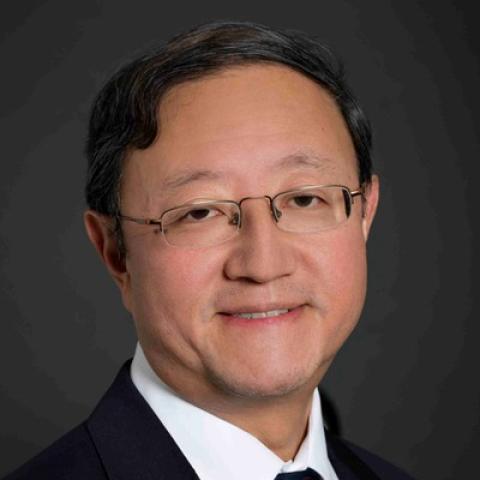
Richard Fujimoto is a Regents’ Professor, Emeritus in the School of Computational Science and Engineering at the Georgia Institute of Technology. He received the Ph.D. degree from the University of California-Berkeley in 1983 in Computer Science and Electrical Engineering. He also received an M.S. degree from the same institution as well as two B.S. degrees from the University of Illinois-Urbana.
Fujimoto is a pioneer in the parallel and distributed discrete event simulation field. Discrete event simulation is widely used in areas such as telecommunications, transportation, manufacturing, and defense, among others. His work developed fundamental understandings of synchronization algorithms that are needed to ensure the correct execution of discrete event simulation programs on high performance computing (HPC) platforms. His team developed many new algorithms and computational techniques to accelerate the execution of discrete event simulations and developed software realizations that impacted several application domains. For example, his Georgia Tech Time Warp software was deployed by MITRE Corp. to create online fast-time simulations of commercial air traffic to help reduce delays in the U.S. National Airspace. An active researcher in this field since 1985, he authored or co-authored three books and hundreds of technical papers including seven that were cited for “best paper” awards or other recognitions. His research included several projects with Georgia Tech faculty in telecommunications, transportation, sustainability, and materials leading to numerous publications co-authored with faculty across campus.
discrete-event simulation programs on parallel and distributed computing platforms
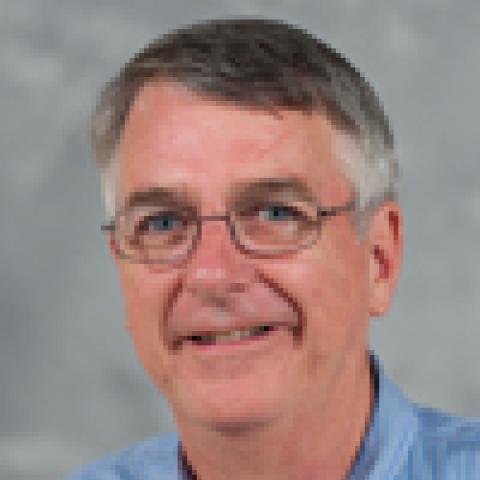
Steven P. French is professor of City and Regional Planning at Georgia Institute of Technology. He joined Georgia Tech in 1992 as the director of the City Planning program and served in that position until August 1999. He was the director of the Center for Geographic Information Systems from 1997 through 2011. He served as associate dean for research for the College of Architecture (now the College of Design) from July 2009 through June 2013 and dean of the College of Design from July 2013-June 2021.
French’s teaching and research activities focus on sustainable urban development, land use planning, GIS applications, and natural hazard risk assessment. In addition to his administrative assignments, Professor French has regularly taught graduate courses in land use, planning, and GIS. He has graduated six Ph.D. students and advised more than 50 Masters students in City and Regional Planning. He has also served on numerous dissertation committees in Architecture, Civil Engineering, and Public Policy.
Over the past twenty-five years, French has been the principal investigator or co-principal investigator on more than seventy research projects. He has participated in a number of National Science Foundation projects dealing with flood and earthquake hazards and was the Social Science Thrust Leader for the Mid-America Earthquake Center, an NSF Engineering Research Center. He has extensive experience in building and managing multidisciplinary teams of social scientists, architects, engineers, and scientists. French is the author or co-author of more than 25 refereed journal articles and four books. He has served on the editorial boards of the Journal of the American Planning Association, Journal of Planning Education and Research, Journal of the Urban and Regional Information Systems Association and Earthquake Spectra.
French holds a Ph.D. in City and Regional Planning from the University of North Carolina at Chapel Hill. Before coming to Georgia Tech, he taught for ten years at California Polytechnic State University-San Luis Obispo. In 1987-88, he served as the visiting professor of resources planning in the Civil Engineering Department at Stanford University. He is a Fellow of the American Institute of Certified Planners and an associate member of the American Institute of Architects.
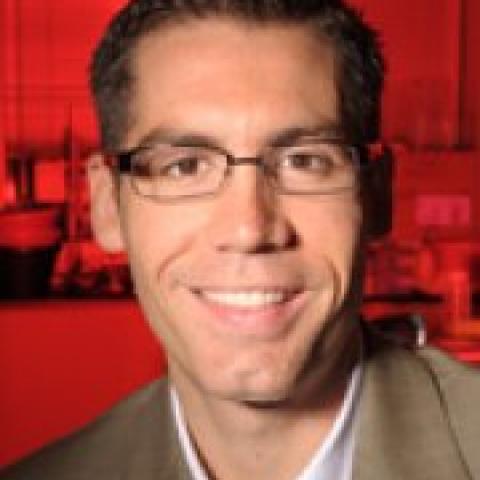
Craig Forest is a Professor and Woodruff Faculty Fellow in the George W. Woodruff School of Mechanical Engineering at Georgia Tech where he also holds program faculty positions in Bioengineering and Biomedical Engineering. He conducts research on miniaturized, high-throughput robotic instrumentation to advance neuroscience and genetic science, working at the intersection of bioMEMS, precision machine design, optics, and microfabrication. Prior to Georgia Tech, he was a research fellow in Genetics at Harvard Medical School. He obtained a Ph.D. in Mechanical Engineering from MIT in June 2007, M.S. in Mechanical Engineering from MIT in 2003, and B.S. in Mechanical Engineering from Georgia Tech in 2001. He is cofounder/organizer of one of the largest undergraduate invention competitions in the US—The InVenture Prize, and founder/organizer of one of the largest student-run makerspaces in the US—The Invention Studio. He was a recently a Fellow in residence at the Allen Insitutte for Brain Science in Seattle WA; he was awarded the Georgia Tech Institute for BioEngineering and BioSciences Junior Faculty Award (2010) and was named Engineer of the Year in Education for the state of Georgia (2013). He is one of the inaugural recipients of the NIH BRAIN Initiative Grants, a national effort to invent the next generation of neuroscience and neuroengineering tools. In 2007, he was a finalist on the ABC reality TV show "American Inventor.”
